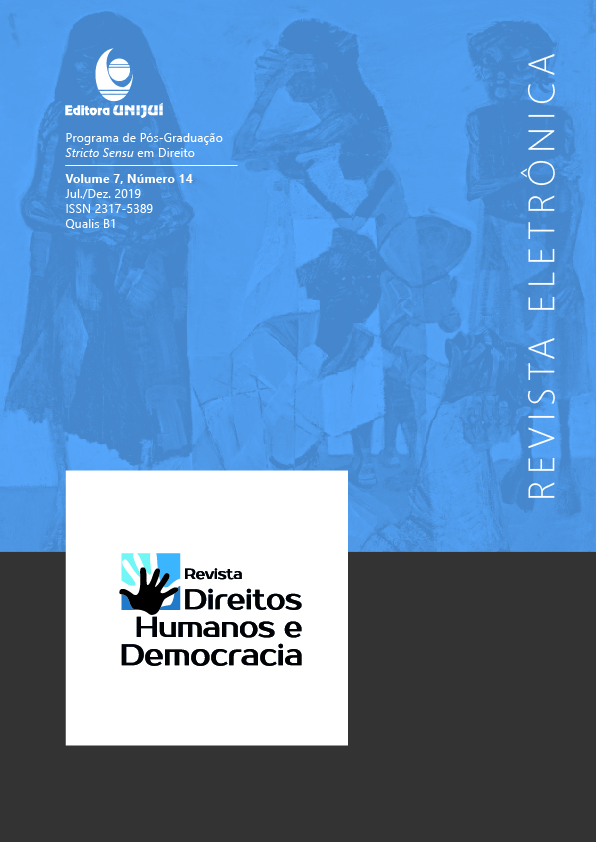O MINISTÉRIO PÚBLICO BRASILEIRO ENQUANTO INSTITUIÇÃO DE POLICE OVERSIGHT: CONTROLE EXTERNO DA ATIVIDADE POLICIAL, DIREITOS HUMANOS E O CONCEITO DE INVESTIGAÇÃO CRIMINAL EFETIVA
DOI:
https://doi.org/10.21527/2317-5389.2019.14.73-84Keywords:
Controle externo da atividade policial. Ministério Público. Investigação. Corte Europeia de Direitos Humanos. Sistema de justiça criminal.Abstract
Considerando que a Constituição Federal de 1988 impõe, ao Ministério Público, o exercício da atividade de controle externo da atividade policial (art.129, VII), o artigo pretende investigar se a instituição possui a aptidão institucional para realizar investigações “efetivas” a respeito de casos que envolvam o uso potencialmente abusivo da força por agentes oficiais do Estado. O conceito de “investigação efetiva” é construído pela jurisprudência da Corte Europeia de Direitos Humanos que extrai, dos direitos à vida e à salvaguarda contra tratamentos desumanos ou degradantes, obrigações procedimentais, a serem observadas pelos Estados signatários da Convenção Europeia de Direitos Humanos, com vistas à prevenção e investigação de eventuais atos que envolvam abuso de poder estatal. A investigação criminal efetiva é, portanto, um instrumento de proteção dos direitos humanos. Após abordar os parâmetros internacionais, o artigo analisa as atribuições constitucionais do Ministério Público e o regime jurídico-funcional sui generis que ele detém em relação à atividade policial. Este regime jurídico lhe assegura autonomia jurídica e operacional para que possa atuar no âmbito do sistema de justiça criminal e para que possa realizar, enquanto instituição de police oversight, investigações efetivas de casos que envolvam potencial uso abusivo da força por agentes oficiais do Estado.
Downloads
Published
How to Cite
Issue
Section
License
By publishing in the Revista Direitos Humanos e Democracia, authors agree to the following terms:
Articles are licensed under the Creative Commons Atribuição 4.0 Internacional (CC BY 4.0), which allows:
Share — copy and redistribute the material in any medium or format;
Adapt — remix, transform, and build upon the material for any purpose, including commercial use.
These permissions are irrevocable, provided the following terms are respected:
Attribution — authors must be properly credited, with a link to the license and indication of any modifications made;
No additional restrictions — no legal or technological measures may be applied that restrict the use permitted by the license.
Notices:
The license does not apply to elements in the public domain or covered by legal exceptions.
The license does not grant all rights required for specific uses (e.g., image rights, privacy, or moral rights).
The journal is not responsible for opinions expressed in the articles, which remain the sole responsibility of the authors. The Editor, with the support of the Editorial Committee, reserves the right to suggest or request modifications when necessary.
Only original scientific articles presenting research results of interest, not previously published or simultaneously submitted to another journal with the same purpose, will be accepted.
References to trademarks or specific products are intended solely for identification purposes and do not imply any promotional endorsement by the authors or the journal.
License Agreement: Authors retain copyright over their articles and grant the Revista Direitos Humanos e Democracia the right of first publication.













